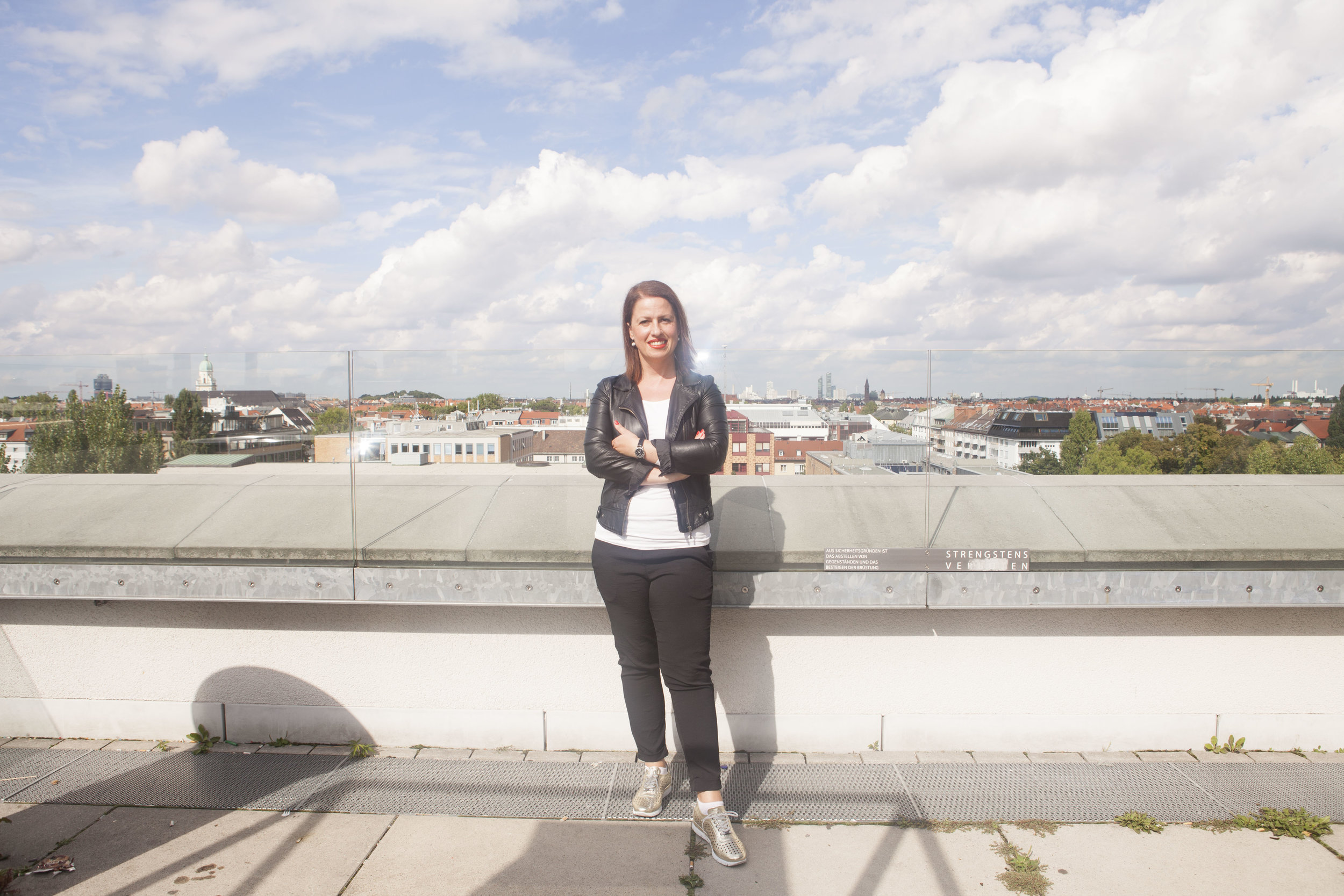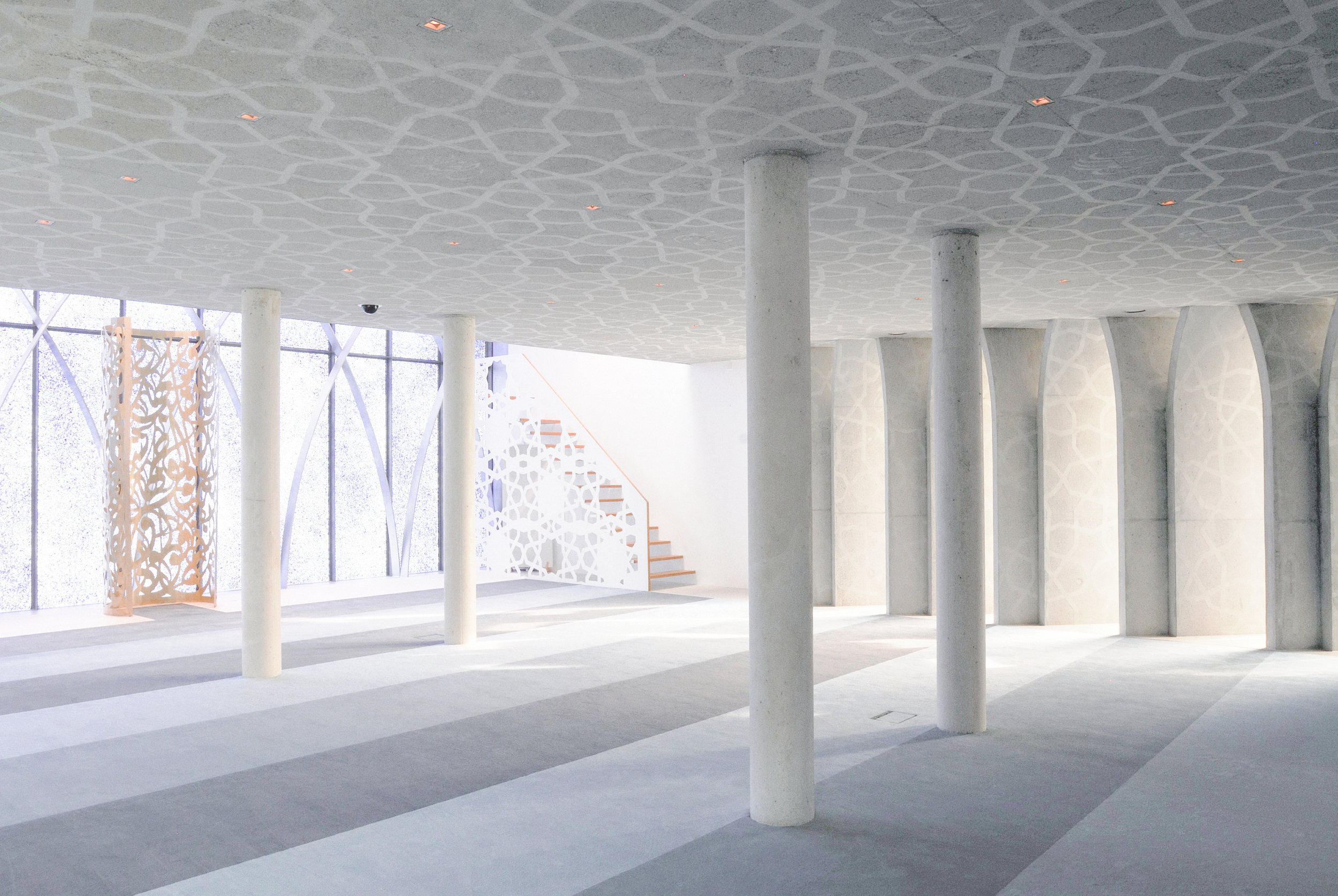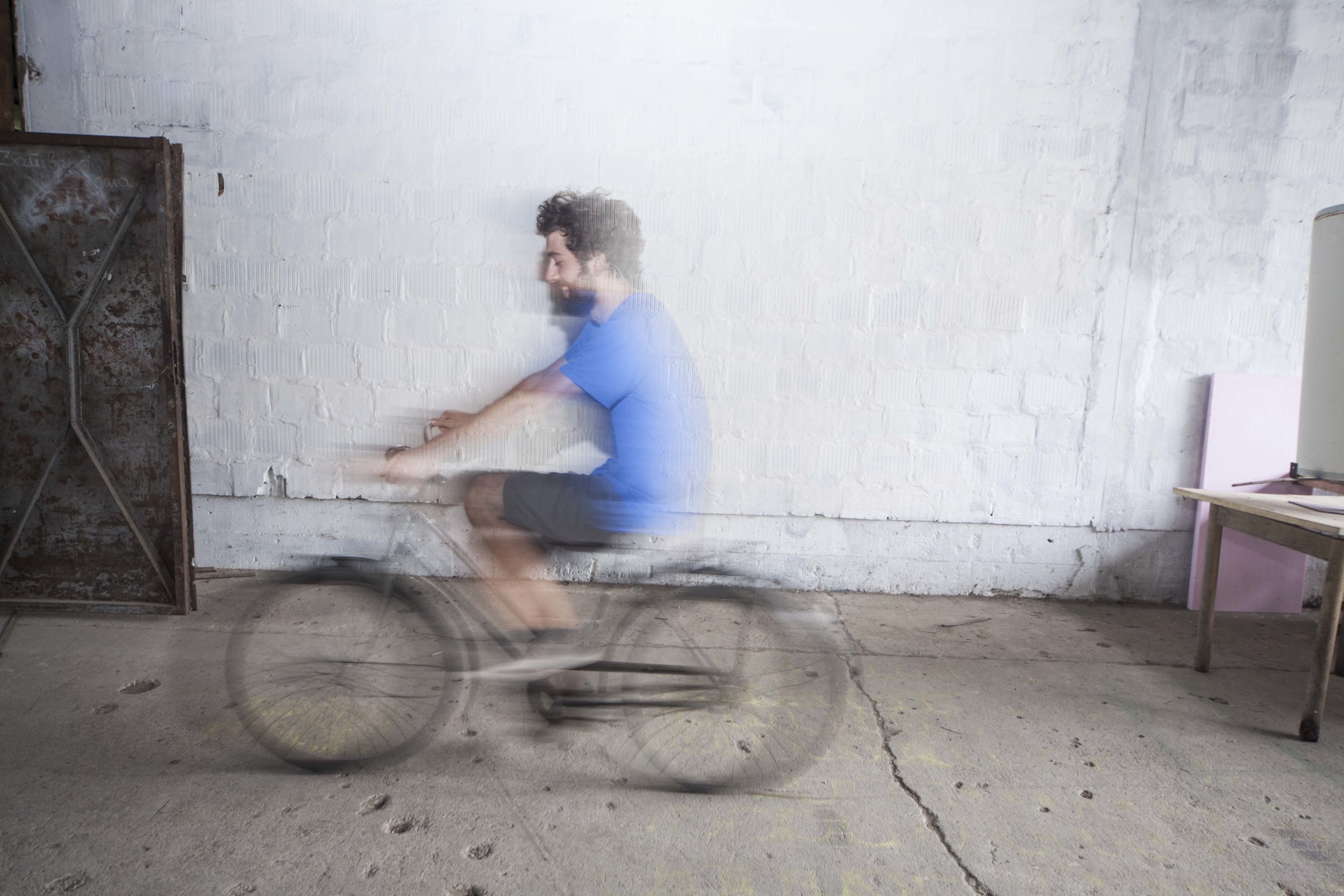Die Leute in unserem Netzwerk sind zwischen Anfang 20 und Mitte 40, meistens Akademiker die auf dem Weg sind mehr Sinnhaftigkeit in dem was sie tun, zu finden. Klar, das Geld spielt eine sehr wichtige Rolle aber auch vereint mit klarer Substanz.
Galina Bankova
Galina ist ein Gamechanger. Vor mehreren Jahren traf ich sie auf dem Vortrag von Publisher von „Enorm“ wo sie ein Mitglied der Organisationsteams des Strascheg Center for Entrepreneurship diese Rede in die Wege geleitet hat. Damals erzählte ich ihr von meiner Idee ein Magazin zu gestalten, traute mich aber nicht den vom Publikum umzingelten Redner, nach seinem Vortrag anzusprechen und nach seiner Meinung zu fragen. Beim Getränke holen erzählte ich ihr, etwas schüchtern von dem Vorhaben. Da hat sie mich doch sehr schnell überzeugt, zum Redner vorzugehen und mich zu trauen. Dieser Moment war eine sehr einprägsame Erfahrung.
Paar Jahre später ist dieser von Fachkompetenz aber scharfsinnigen Feingefühl begabter Mensch selbständig mit Coaching und Veranstaltungen „DO WORK YOU LOVE“. Das klingt romantisch aber wer das so allein wahrnimmt unterschätzt Galina. Nach einem BWL Studium und Erfahrung im Veranstaltungsmanagement, Startup Verwirklichung und Unternehmensberatung hat sie erkannt wie wichtig es doch es doch etwas ist was im modernen Westeuropa doch so strukturiert geworden ist, die zwischenmenschliche Begegnung. Aus einem kleinem Dorf in Bulgarien namens Dorkovo stammend kommt sie 2004 wegen dem Studium nach München und schafft es, Vorzüge der beiden Kulturen, West und Osteuropa gekonnt in die Arbeitswelt einfließen zu lassen.
Was macht „Do work you love“?
Einfach gesprochen, helfen wir Menschen einen Job zu finden der zu Ihnen passt in dem wir Klarheit gewinnen und sie miteinander vernetzten. Wir arbeiten auch mit Best Practise Beispielen und organisieren Vorträge und Events. Es ist eine Plattform die Online und Offline Menschen vernetzt.
Also geht es nicht mehr darum mehr Karriere oder Geld, sondern mehr Lebensbalance?
Ist das „Do work you love“ Philosophie?
Die Leute in unserem Netzwerk sind zwischen Anfang 20 und Mitte 40, meistens Akademiker die auf dem Weg sind mehr Sinnhaftigkeit in dem was sie tun, zu finden. Klar, das Geld spielt eine sehr wichtige Rolle aber auch vereint mit klarer Substanz.
Wie hat es angefangen?
Es gab mehrere Situationen und Faktoren die dazu geführt haben. So wirklich hat es angefangen in meiner Kindheit weil ich aufgewachsen bin in einem kleinen Dorf in Bulgarien wo es ganz normal war einfach auf die Piazza zu gehen und sich mit den Leuten auszutauschen. Es war normal Freunde spontan zu besuchen, im Alltag sich offen und frequent zu sozialisieren. Im laufe der Jahre ist es immer seltener geworden, dieser Art von dynamischen Kommunikation zu üben, auch in der Geschäftswelt. Vor allem in dem Berufsleben ist es mir in den letzten Jahren aufgefallen das es an Vernetzung der Menschen fehlt. Denn schon vor 10 Jahren fing ich an mich mit Veranstaltungsmanagement zu beschäftigen und in meiner Erfahrung merkte ich welche immense positive Auswirkungen es hat, verschiedenartige Menschen zusammen zu bringen.
in der Geschäftswelt. Vor allem in dem Berufsleben ist es mir in den letzten Jahren aufgefallen das es an Vernetzung der Menschen fehlt. Denn schon vor 10 Jahren fing ich an mich mit Veranstaltungsmanagement zu beschäftigen und in meiner Erfahrung merkte ich welche immense positive Auswirkungen es hat, verschiedenartige Menschen zusammen zu bringen.
Wie ging deine berufliche Laufbahn davor?
Ich habe BWL studiert mit Schwerpunkt Hotellerie und Eventmanagement. Schon zu Studienzeiten dürfte ich arbeiten und Erfahrung sammeln aus dem Bereich. Dabei arbeitete ich für große Konzerne und habe sehr viel gelernt und merkte schnell in welchen Bereichen meine Stärken liegen. Das waren große Namen wie Infineon, Siemens, Allianz oder auch einige kleinere Hotels. Für meine persönliche und berufliche Weiterentwicklung war ein Seminar in Geschäftsmodellen Entwicklung 2009, als damals noch Studentin. Dabei entdeckte ich den Impact wenn fremde Menschen zusammenkommen und etwas neues Entsteht etwas mit Wirkung, und was ich gerne ermöglichen möchte. Seit dem bin ich in der Welt von Innovation, Geschäftsmodellen Entwicklung und Startups Unterwegs. Für das Strascheg Center habe ich 4 Jahre gearbeitet und dabei Menschen unterstützt dass sie das gründen verwirklichen. Während dieser Tätigkeit beim SCE habe ich eine Coaching Ausbildung angeschlossen und auch als Hobby„Toastmasters“* Kompetenzen ausgefeilt. Danach arbeitete ich bei einer Unternehmensberatung, merkte aber nach einer Gewissen Zeit, das ich bereit bin, mich selbständig zu machen.
Seit wann bist du selbständig?
Seit Sommer 2015 mache ich jetzt „Do Work You Love“ und konnte Vernissagen bzw Veranstaltungen zum mit Rednern auf der Bühne zum Themen wie Women in Tech, Digitale Produkte, Sport and Nutrition, Customer Experience veranstalten.
Zusätzlich organisiere ich 2 im Monat, Montags „Do Work You Love“ Breakfasts und gebe zusätzlich Workshops und Coachings. In diesen 2 Jahren erlebte ich mit, wie waren es über hunderte von Menschen die Impulse, Kontakte und Inhalte mitbekommen und ausgetauscht haben.
Prägt dich noch deine Herkunft?
Eine sehr osteuropäische Seite von mir die ich gerne mag und für welche ich auch positives Feedback bekomme ist der Spaß am Gastgeber sein. Auf Menschen zugehen fällt mir leicht und spielerisch Anknüpfungspunkte finden. Diese nicht zu unterschätzende Softskills bringe ich ein auch in die Arbeit ein. Aktuell darf ich bei der „Bit und Pretzels“ den Austausch ankurbeln. Das ist das größte digitale Startup Festival in Deutschland, welche auf dem Oktoberfest stattfindet und seit 5 Jahren erfolgreich existiert und sich ausweitet. Allerdings hat sich herausgestellt dass es zum Thema Networking Verbesserungspotential gibt und da komme ich ins Spiel und darf zum Thema geschäftliches „Match Making“ mitmischen. Das ganze ist aber auch strategisch überlegt und wird Menschen ,Themen- und Problemspezifisch verbinden. Zwar hat es den gegenseitigen Austausch und Hilfestellung zum Ziel, dennoch die Leichtigkeit eines Volksfestes. Statt es allein nüchtern und technisch zu lösen, werde ich das Networking auf diesen Startup Festival auf eine persönliche, mehr osteuropäische Art ankurbeln. Mir ist es wichtig, dass außer der der so oft in der Vordergrund tretenden Fachkompetenz, ein Mensch auf einen Menschen trifft.
Hat es dich verändert, die Selbständigkeit?
Du hast eine lange Reise...
In den letzten 2 Jahren fühle ich mich immer mehr ich selbst, und kann Dinge umsetzen wie ich sie für richtig halte. Denn ich würde mich als Visionär Bezeichnen bin aber gleichzeitig auch einen sehr pragmatischer und praktisch denkenden Mensch. Die mühsam gewonnene Vorerfahrung hilft eine schnellere Umsetzung von Gedanken in konkretes.Aber jetzt fühle wie ich stärker hinter dem eingeschlagenen Weg gehe und habe die Erfahrung und Weitsicht die extra Meile zu gehen. *Toastmasters: Eine Organisation bei welcher mein seine Rhetorik und Leadership Kompetenzen ausbauen kann.
*Link:
http://www.munich-toastmasters.de














































